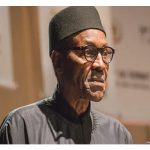New Report Sets Agenda for Islamic Finance Development in Africa
African News, Latest Headlines Monday, November 30th, 2015
By Eric Ojo, Abuja
In a bid to further explore opportunities in Islamic finance which is slowly gaining widespread acceptance in Africa, the Islamic Corporation for the Development of the Private Sector (ICD) has published a comprehensive report setting agenda for the continent.
ICD is a multilateral organization and a subsidiary of the Islamic Development Bank (IDB) Group which was established in November 1999 to promote economic development of its member countries in accordance with the principles of the Sharia through private sector development.
The organization also encourages the establishment, expansion and modernization of private enterprises through financing private sector enterprises or projects.
In addition, ICD equally provides advice to governments and private sector groups on policies to encourage the establishment, expansion and modernization of private enterprises, development of capital markets, best management practices as well as enhance the role of market economy.
The report entitled, “Islamic Finance in Africa: A Promising Future”, also noted that Islamic finance can act as the catalyst in mobilising funding into Africa, thereby resulting in economic growth and sustainable development in the region.
It added that such a measure has become imperative because Africa currently needs an estimated $93.0 billion per year to finance large-scale infrastructure and manufacturing projects, while external funding is also needed to offset ballooning fiscal deficits.
The report which was released during the 2015 Africa Islamic Finance Forum held recently in Abidjan, further observed that there is potentially a strong demand for Islamic finance services and products in the continent which is the birthplace of a quarter of the global Muslim population.
It however pointed out that though Islamic finance is still comparatively under-developed, yet it is expanding in many parts of the region as it is now present across most of North Africa and in many countries of East and West Africa, particularly those with sizeable Muslim communities.
The report also explained that 2 billion adults remain unbanked globally while sub-Saharan Africa alone currently accounts for as much as 17.0 percent of the world’s unbanked adults.
“In addition, there is a significant funding potential opportunity for Islamic banks in view of the increasing emergence of small-to-medium enterprises (SMEs) across Africa. In light of relatively low-income levels, a large informal sector and the prevalence of small businesses in Africa, Islamic microfinance is also a growth area worth looking into”, the report said.
It further affirmed that notable progress has been made in the sukuk sector, where recent developments have seen governments focusing more on creating a more enabling environment for sukuk issuances, adding that some countries which have issued sukuk include; Gambia, Sudan, Senegal and South Africa, while Ivory Coast is lining up to issue its debut sukuk at the end of the year.
The report also disclosed that several countries such as Tunisia, Egypt and Morocco have expressed keen interest in tapping the sukuk market for infrastructure financing. It added that some have finalized or are in the midst of finalizing their legal frameworks to promote sukuk issuances.
It equally posited that although the Islamic financial services industry in Africa is currently dominated by the banking and sukuk segments, growth potential remains in the asset management and takaful spheres.
To capture the tremendous potentials of Islamic finance, the report recommended that, the regional industry must overcome various challenges which are broadly similar with challenges faced in other parts of the world.
These, according to the report, include challenges on the regulatory front such as regulatory inconsistency, the shortage of qualified human capital, the lack of awareness and financial literacy by many end-users and consumers, and a conducive business landscape which will support the growth of Islamic finance.
At the Abidjan meeting where the global banking community came together to define a transformative new landscape to integrate Islamic finance into the mainstream, it was agreed that local and international market players should explore the development opportunities in Islamic finance.
The conference said this can be achieved by concentrating on building the market and exploring its exceptional potential through inward investment and international collaboration. The two-day event featured extensive discussions capitalizing on investment opportunities in key African markets.
On the first day of the meeting, participants deliberated on a global overview of Shariah compliant transactions and the industry as a whole followed by a session on Africa’s blueprint for Islamic finance development.
In addition, an exclusive roundtable also discussed Africa’s value proposition, opportunistic venture and the healthy pipeline of infrastructure and project finance in the host country, while the last segment elaborates on initiatives in developing Cote D’Ivoire as a Shariah compliant investment destination.
This was followed by a panel discussion on the second day of the event which was mainly focused on the application of Shariah compliant tools to SME financing and microfinance, followed by a special presentation by INOKS Capital on investments opportunities in African SMEs.
The later session featured another roundtable on human capital with a specific focus on what the industry really needs in relation to developing a new generation of Islamic bankers, while the last dialogue concentrated on prospects, opportunities and challenges of trade finance in Africa.
Related Posts
Short URL: https://www.africanexaminer.com/?p=28050






















